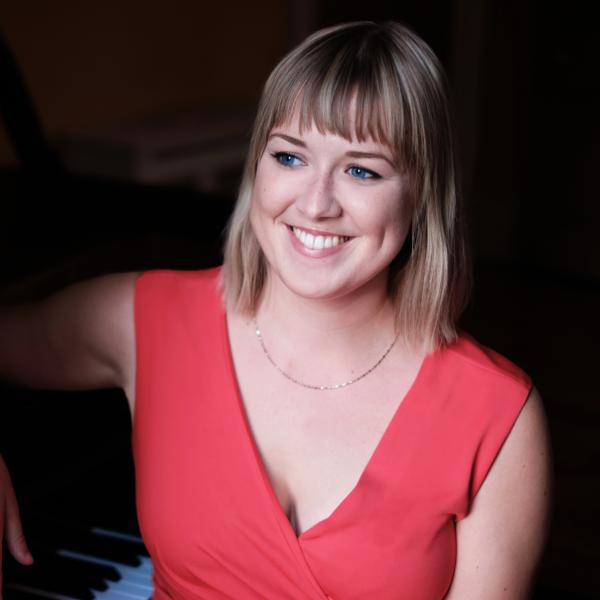Course overview
The Bachelor in Music (BMus) degree is four years long. Each study year has 30 weeks in total from September to June - 24 academic teaching weeks and six performance spotlight weeks. There are no academic classes during the performance spotlight weeks, but your practical lessons continue across all weeks.
The performance spotlight weeks provide you with the time and space to focus solely on WBP solo or ensemble projects with international and national tutors and conductors.
The BMus degree at the RIAM takes in small numbers of WBP students each year, and this is for a reason. If you study with us we will give you a lot of contact time with expert tutors. This includes:
- Two hours each week in your one-to-one lesson
- An hour a week with an accompanist
- Weekly chamber music coaching
- Access to a range of orchestral opportunities
- Frequent masterclasses
- Small academic classes to help you excel in theoretical studies
5 pillars of study
The course consists of five pillars:
- Principal Study
- Chamber Music
- Large Ensemble Performance
- Supporting Academic Studies
- RIAM Holistic – the working musician
Principal Study
At the heart of the BMus WBP programme are core lessons with your principal study teacher. You will have two hours of one-to-one lessons per week, supported by a further hour each week with your piano accompanist. In addition, weekly performance classes and frequent masterclasses with international artists ensure that WBP players are able to grow technically and musically over the four years of the programme.
Years 1 and 2 support you in underpinning and maximizing your technique. Mid-year technical exams focus on mastery of the required studies and ability to sight-read. The end-of-year exams require performances of suitable repertoire to highlight your developing skills.
Years 3 and 4 focus on helping you develop to a professional standard. The mid-year exam in year 3 is a mock orchestral audition, and in year 4 is a full Concerto performance. The end of year exams require you to perform standard recital repertoire and encourage performances of contemporary works.
Chamber Music
In all four years students are coached in chamber music by expert tutors. WBP players are encouraged to work in duos, trios and quartets. In later years, students tackle the larger WBP chamber repertoire up to dectets.
Our chamber musicians frequently perform in national and international venues such as the National Gallery of Ireland, American Irish Historical Society (New York) and the Centre Culturel Irlandais (Paris).
The RIAM Percussion Ensemble is a dedicated group that performs cornerstones of the percussion chamber repertoire under the guidance of Principal Percussion at the RTE National Symphony Orchestra, Richard O’Donnell. This group performs in the USA annually and commissions works from exciting young composers to add to the repertoire for this ensemble type.
Large Ensemble Performance
Throughout the 4 years you will take part in RIAM Podium, the Centre for Performing Ensembles. WBP students will perform in the following ensembles:
- The RIAM Philharmonia, a sinfonietta orchestra specialising in late 18th century repertoire and cornerstones of the 20th century
- RIAM Wind Ensemble, an un-conducted group
- RIAM Early Music Ensemble, learning the techniques of 17th century by using Baroque instruments
- RIAM Opera Orchestra, which accompanies the RIAM’s fully-staged projects
- RIAM Contemporary Music Ensemble, tackling 20th century and premiering newly written works
RIAM also has professional mentoring agreements for WBP students with the RTÉ Symphony Orchestra, RTÉ Concert Orchestra, Irish Chamber Orchestra and Irish Baroque Orchestra
Supporting Academic Studies
The academic component of the degree adds an intellectual foundation to your practical WBP studies, making you a more thoughtful and interesting musician.
In years one to three, you will study a number of core modules: Harmony and Counterpoint, Aural training, Analysis and History. There are also shorter modules in Music Technology, Instrumental Pedagogy, and Free Composition.
In Year four you have the opportunity to explore a specialist elective of your own choice: Dissertation, Composition, Music technology, Analysis or Conducting.
RIAM Holistic- the working musician
The fifth pillar of study is designed to make you a flexible and adaptable artist, ready in mind and body for the demands of a portfolio career in music. Students study:
- Career Strategy
- Entrepreneurship
- The principles of pedagogy
- Music in the community
- Contemporary music collaborations
- Yoga and Feldenkrais
- Performance psychology
For a more detailed description of the course requirements, please refer to our course handbook

























